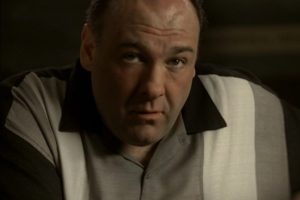Very often the Psalms are actually a form of beatitude. Psalm 1 sets the tone: “Blessed is the one who does not walk with the wicked.” Beatitudes—including the most famous ones of them all from Matthew 5—are very often blessings spoken over people whose lives the rest of the world may not deem to be all that special or blessed at all. Certainly that was Jesus’ theme in Matthew 5: he pronounces beatitude blessings over all the people whom the rest of the world regards as losers. Similarly in the Psalms: in a grab-the-brass-ring world where only the gutsy and courageous succeed, those who lead quiet lives of piety and obedience to God seem to be grabbing for the bottom rung of the ladder. The meek, the brokenhearted, the pious: these folks just won’t get ahead in life.
But Jesus and many of the psalmists pronounce a blessing over those very people because they are in touch with deeper, more lasting, indeed downright eternal truths.
We will get back to that in a bit but first . . . well, the psalmist moves from this beatitude over the righteous to some pretty grand statements that are typical of many psalms, including several we have covered recently in the Year C Lectionary. Somehow, it makes me minded to quote that famous Ronald Reagan line from one of his debates with President Carter in 1980:

“There you go again . . .” Sure, it is true that in the long run the righteous are better off. But no sooner is that principle stated and we get treated to some over-the-moon, grandiose claims that these very righteous people are going to be on easy street. Everything will go swimmingly for them. Their children will be the best and the brightest. They will have so much money they will be able to give generously to the poor. Serenity will attend them day and night. And so to this Hebrew poet I want to say “There you go again” making sunny predictions on the righteous that, frankly, so very often do not line up with everyday realities in this world. What’s more, we are told the wicked will see the prosperity of the righteous and gnash their teeth over it all.
Truth is, in my experience it is very often the righteous who gnash their teeth over the successes and advancements of the wicked, of the crooked, of tax cheats and white collar crooks, of devious CEOs who are given hugely lucrative golden parachutes even after being forced to resign for malfeasance of one kind of another. Psalm 112 may express our fondest wishes for how life should go and it is no doubt accurate in the longest possible run in God’s kingdom. But for now . . . well, there you go again painting a stark black-and-white picture that too often falls painfully short of reality.
Still, in addition to that truth that this will be our ultimate reality—albeit in the sweet by and by perhaps—there are some other truths in Psalm 112 worth savoring and worth lifting up. In particular I like verses 7-8: “They will have no fear of bad news; their hearts are steadfast, trusting in the Lord. Their hearts are secure, they will have no fear; in the end they will look in triumph on their foes.” There is something about that idea of not having to fear “bad news” that strikes a chord.
I think the sense here is not that bad things will never happen to the righteous. We know that also is simply not true. But instead I think this means that they don’t have to worry about being haunted by past misdeeds, sins, or crimes. When you live an upright life, things may or may not go well for you financially or in terms of your health or the wellbeing of your every loved one but you won’t lie awake at night worrying that somebody is going to find out about that horrible crime you committed 15 years ago. You won’t spend nervous hours fretting that all those extramarital affairs you’ve had will come to light and devastate your spouse. You won’t be haunted by secrets, by skeletons in your closet.
How different is the situation for wicked people, this psalm as much as says! They have good reasons to worry. Bad news in the form of some shocking revelation about something from their past could burst forth at any moment. No matter how successful they may be at any given moment, it’s a house of cards they have built and one fell gust of wind could bring down the whole enterprise.
It reminds me of the nefarious characters in the TV series The Sopranos.

Sure, Tony Soprano was a successful mob boss with a gorgeous home, fancy cars, and all kinds of money stashed here, there, and everywhere but he could never relax. He could never be carefree. He could get whacked at any moment and receive himself the very violence he had for so long doled out to others. (And depending on how you interpret the controversial final scene of the final episode, it may well be that Tony got exactly that in the end.) When you spend your life dishing out bad news to others as your way of advancing yourself in the world, you fear 24/7 bad news circling back to you.
The righteous, by contrast, are secure. No ghosts from their past will ruin their present or their future. They don’t have to spend all their time managing and trying to remember all the lies they have told over the years because they have always told the truth. It’s finally exhausting to lead a bad life. Far better to have the serenity and security of having nothing to hide.
The most literal descriptions of Psalm 112 about the righteous being rich and happy and forever free of problems or sickness may not, for now, be true. But the portrait of being secure—or, again, recall the image of Psalm 1 about being a well-rooted tree planted by a stream of water—is surely true even now. That is why they will be “remembered forever” by God while the wicked will be forgotten. When the end of the cosmic day comes, the righteous will be revealed as rock solid while the wicked will be revealed as having all along been finally nothing, chaff in the wind, no substance but only flash and bling that will fade to nothing.
“Blessed are the righteous” Psalm 112’s opening beatitude declares. Yes, indeed, they are blessed!
Illustration Idea
Here is the conclusion of Frederick Buechner’s summary of Jesus’ Beatitudes from Matthew 5: “Jesus saved for [the last blessing] the ones who side with Heaven even when any fool can see it’s the losing side and all you get for your pains is pain. Looking into the faces of his listeners, he speaks to them directly for the first time. ‘Blessed are you’ he says. You can see them looking back at him. They’re not what you’d call a high-class crowd—peasants and fisherfolk for the most part, on the shabby side, not all that bright. It doesn’t look as if there’s a hero among them. They have their jaws set. Their brows are furrowed with concentration. They are blessed when they are worked over and cursed out on his account he tells them. It is not his hard times to come but theirs he is concerned with, speaking out of his own meekness and mercy, the purity of his own heart.”
Frederick, Buechner, Whistling in the Dark: An ABC Theologized. San Francisco: Harper & Row, 1988, p. 19.
Tags
Sign Up for Our Newsletter!
Insights on preaching and sermon ideas, straight to your inbox. Delivered Weekly!
Sermon Commentary for Sunday, September 1, 2019
Psalm 112 Commentary